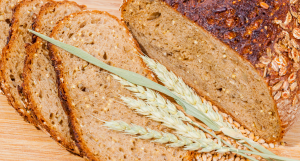Gut micro biota may improve sugar metabolism in humans

Why diets do not have the same effect in different individuals has long been a mystery in the field of nutrition. Different studies in recent years have shed some light on the issue, highlighting the role gut microbiota plays in both the physiology and metabolism of humans.
In fact, it is known that the trillion microorganisms inhabiting the human colon modulate dietary interventions and can be an important environmental factor that contributes to the development of metabolic diseases such as type-2 diabetes, obesity and even cardiovascular conditions.
Furthermore, it is a two-way relationship, with food altering bacteria and bacteria affecting the metabolism of food.
Now, a new study by scientists from the Sahlgrenska Academy at the University of Gothenburg demonstrates which bacteria are responsible for some of these effects. Published in Cell Metabolism, the authors show how the bacteria Prevotella improves glucose metabolism in healthy human subjects. Prevotella is linked with a high fibre intake, whereas Bacteroides, for example, is associated with an elevated consumption of protein and fat.
In an experiment with 39 individuals, the scientists put the subjects on a diet that included eating barley bread for three days and then, following a break, consuming white bread. They measured glucose and insulin responses to the diets and observed how in most participants, the barley bread was linked to an improved response in terms of sugar control compared to white bread.
Nevertheless, the level of improvement in some individuals was much clearer than in others.
The authors of the study measured the gut microbiota of every subject and observed how it changed in the individuals who had the most positive response to the dietary intervention, showing a higher proportion of Prevotella. However, the opposite effect was observed in individuals who had responded least to the barley bread intervention.
“Our findings clearly show the importance of the interaction between gut microbiota and diet and contribute to our understanding of metabolism in health and disease. The results may help to explain why responses to different dietary treatments are so individual,” co-author of the study Professor Fredrik Bäckhed from the Sahlgrenska Academy, University of Gothenburg said in a statement
To confirm their results, the scientists carried out a second experiment, this time with rodents. They transplanted either faecal microbiota from the individuals who showed a positive response or Prevotella probiotics to germ-free mice and observed how the rodents improved their glucose metabolism and increased their Prevotella levels.
The link between the gut microbiota and various dietary fibres could help develop more individualised dietary guidelines. In fact, this study shows that Prevotella is crucial for digesting complex fibres and this may stimulate and improve the body’s glycaemic response. In this respect, several recently published papers support the idea that Prevotella is a critical bacterium for healthy microbiota.
“Our results also show that control of blood sugar improves in mice supplemented with Prevotella if they are given a high-fibre diet. Our findings could lead to a combination product with Prevotella and fibre from grains,” said Bäckhed.
http://www.gutmicrobiotaforhealth.com/en/gut-microbiota-may-improve-sugar-metabolism-in-humans/
 |
| https://tidbitsfrommarcus.wordpress.com/2014/05/09/lazy-way-to-lose-weight-cinnamon-honey-and-water/ |
No comments:
Post a Comment